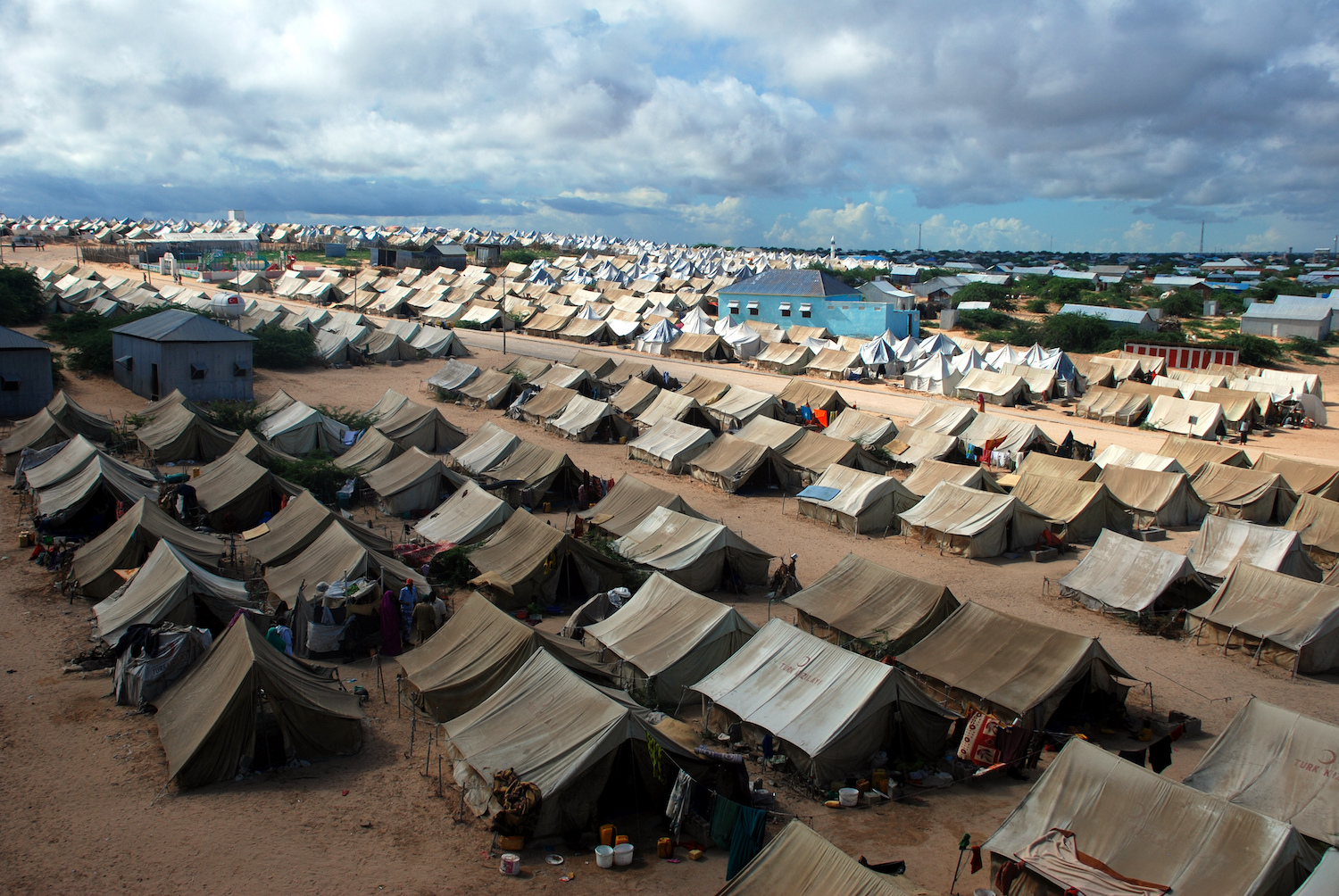ImpactAlpha, Jan. 12 – The record number of people who have been displaced from their communities by conflict, climate, crime and poverty is making lenders to the poor nervous.
With borrowers on the move, loan repayment rates have fallen and hard-won social progress is being reversed. To adapt, longtime investors focused on ‘financial inclusion’ are pivoting to provide backing to providers of financial services for migrants and refugees in Africa, Asia and Latin America.
The number of forcibly displaced people around the world reached an all-time high of 84 million people last year, according to the U.N. High Commissioner for Refugees. The displaced population could top 300 million by the end of the decade, if current trends continue.
That’s driving a wave of new products, underwriting methods, distribution channels and marketing efforts to serve the growing market.
In Uganda, a motorcycle leasing company has opened a branch alongside refugee camps in the northwest part of the country. Commercial banks are setting up outposts in refugee hotspots and financial services providers are underwriting cash transfers to displaced communities.
“We needed to deal with it proactively and systematically,” says Aleem Remtula of Developing World Markets of the impact of displacement on the firm’s investment portfolio.
DWM, which provides debt and equity to microfinance institutions and other financial institutions in emerging markets estimates that up to 70% of its equity holdings across two funds have been impacted by migration, including rural to urban, economic out, climate- and conflict forced displacement and displacement due to public infrastructure projects. Remtula’s own family was part of the wave of Asian migrants thrown out of Uganda, Kenya and Tanzania decades ago.
DWM is standing up a Displaced Communities Fund, targeted at $50 million, to make equity investments to bolster financial services for refugee populations in Uganda, Kenya, Ethiopia, Nigeria, Jordan, Pakistan and Colombia. The fund has secured an anchor investment of €15 million ($17 million) from a German faith-based pension fund. A 15% first-loss guarantee from a European development agency will protect investors from portfolio losses.
Such risks have often been misperceived by investors. In the Great Financial Crisis and again in the pandemic, microfinance and other financial services targeting lower-income customers have proved surprisingly resilient.
Financial inclusion investments, Remtula says, “is one of the few sectors in impact that actually has a long and stayed track record through multiple cycles and incorporates political, climate and regulatory risks.”
Refugee-ready
Protecting and advancing such social progress in emerging markets increasingly requires investors to adapt their approaches for people on the move.
Acumen, with $137 million invested in 139 companies, has partnered with the Refugee Investment Network to find ways to serve displaced populations in Ethiopia, Kenya, and Uganda. The goal is to develop on-ramps, including through the use of catalytic capital, for investors to advance climate resilience, refugee self-reliance, and social cohesion between displaced communities and their hosts. The firm plans to launch a Refugee Lens Venture Accelerator this year.
For emerging market investors in tech, finance or small businesses, and even lenders to larger enterprises, “it is highly likely that some of the people that you are directly or indirectly financing are displaced or formerly displaced,” says John Kluge, founder of the Refugee Investment Network. RIN has assessed markets for refugee investment readiness in the U.S., Mexico and Colombia.
Private capital isn’t a substitute for humanitarian aid. But it can provide a bridge to “long-term durable solutions where people are shifting away from dependency on aid and are more self-reliant,” Kluge says.
Kiva Capital last April closed its $32.5 million Refugee Investment Fund to provide debt capital to microfinance and other intermediaries promoting financial inclusion for underserved refugees in the Middle East, Africa and Latin America. Impact investors like Root Capital are mobilizing alongside corporations and the Biden administration to play a larger role in stemming migration from Central America.
Recent months “have been a pretty sizable leap forward for this emerging field,” says Kluge, who sees investors moving from talk to action, allocating programmatic budgets and investment dollars for ‘refugee-lens investing.’
Risk misperceptions
DWM has found displaced customers to be less risky than investors perceive. Kiva, too, found that refugees repay their loans at similar or higher rates than non-refugees.
“There’s often a perception of displaced communities being flight risks, but you’re actually seeing an average duration of displacement north of 25 years for 50% of the population,” says Remtula.
DWM’s deal pipeline for its new fund ranges from upstart fintech companies to established banks and microfinance institutions. DMW will assess each company for existing service to migrant populations as well as commitment and ability to expand service. In due diligence, an advisory firm will assess opportunities for new products and services, distribution channels and underwriting capabilities, and measure impact over time.
Significantly, Developing World Markets has agreed to tie a portion of its carried interest, or profits from the fund, to its success in achieving impact goals, such as services for refugees, to align managers’ incentives with the impact intentions of limited partners.
Borrower demand as economies emerge from the pandemic means financial institutions that serve vulnerable populations will need additional investment. Remtula estimates that such institutions will need more than $200 million in new equity capital in the next 18 months.
Remtula says the first-loss guarantee can nudge institutional investors to step up to fill the capital gap. They will ultimately be convinced by the financial performance of refugee-ready services for an unfortunately growing market.
“The nature of the assets that we’re investing in will be positive, well-performing and able to serve in a sustainable way some of the displaced communities that we’re talking about,” he says.











